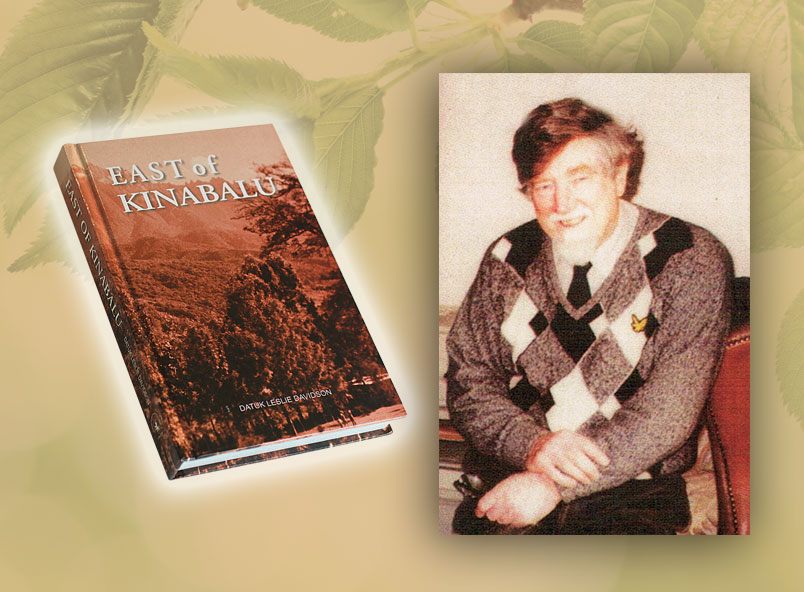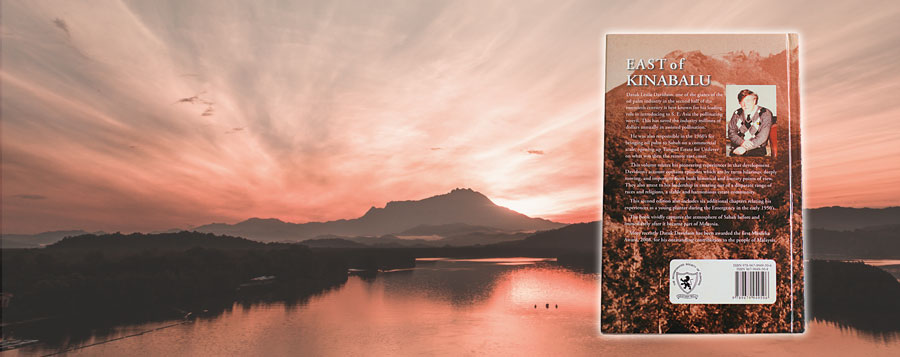



Datuk Leslie Davidson, a pioneer of Malaysia’s oil palm industry, passed away in the UK on April 14, 2019. He was 88, Plantation consultant Mahbob Abdullah pays tribute to a dedicated planter whose ideas helped revolutionise and expand the sector.
Leslie Davidson was born in Aberdeen, Scotland, on Jan 26, 1931 and had his education at Gordon’s College. After he did National Service as a young officer in Kenya, he started planting in Pamol Estate near Kluang, Johor, in 1951. It was not a good period for planters, due to the Emergency during the Communist insurgency in Malaya. He was mistakenly reported killed a few times. In 1957, he was seconded to Cameroon and later to Nigeria.
From 1960-69, he worked in Sabah to develop the Pamol oil palm plantation and mill on the Labuk River, near Sandakan. In 1970, he returned to Kluang to become Chairman of the two Unilever plantations. He served on several national committees in the planting industry.
He left Malaysia for London to become Vice-Chairman of Unilever International Plantations Group in 1974 and became the Chairman in 1982. During his time in London, he started oil palm businesses in Thailand and Colombia, and the Group doubled in size with the acquisition of Brook Bond’s tea plantations in India and East Africa.
He was Chairman of Unifield in Bedford, the first large-scale tissue culture unit which planted the first tissue culture oil palm on Pamol Estate in Kluang. He was Chairman of the Tropical Growers Association in London for two years and was the first Chairman of the International Centre for Plantation Studies at Silsoe.
On retirement from Unilever at the age of 61, Leslie Davidson joined the board of Bertam Holdings, and retired as Deputy Chairman at the age of 70 in 2001.

As a young man, he helped to develop the oil palm industry in Sabah. He planted oil palm on an old tobacco estate. He had been sent there by Unilever because of his experience and because he had passed the ISP examinations in both Malay and Hakka.
He went up the Labuk River, recruited his first worker and started Pamol’s Tungud Oil Palm Estate. Although CDC had some oil palm on an abaca estate in Tawau, Tungud became the first oil palm estate in Sabah.
In the first few years, Leslie Davidson and his family lived in an attap hut on the bank of the Labuk River. In the floods of 1963, the hut was washed away. In spite of the floods, he managed to develop an oil palm estate which covered over 20,000 acres. He wrote a book East of Kinabalu, detailing his life and the challenges faced.
But the standard of pollination was low. The company needed over 500 workers to hand-pollinate the palms daily. As a young planter, he had seen in Cameroon that the fruit got pollinated even in the wettest months, and had noticed a lot of insects around the flowers. He was sure that in Africa, where the oil palm came from, they were insect-pollinated.
In 1974, on his return to London as Deputy Chairman of Unilever Plantations International, he persuaded the company to let him use his idea. He had several meetings in London with Dr Greathead, the Director of the Commonwealth Institute for Biological Control (CIBC)
The CIBC agreed to send an eminent expert, Dr Rahman Syed, to Cameroon to investigate. Dr Rahman found several pollinating insects in Africa. The most effective pollinator proved to be Elaeidobius kamerunicus. Female flowers, when ready for pollination, have a way of attracting these pollen-covered weevils. Dr Rahman found that in some areas of Peninsular Malaysia and Indonesia, the oil palm was being partially pollinated by thrips. However, they were not as efficient as the weevils.
Dr Rahman and the CIBC carried out four years of research on Pamol’s Lobe Estate in Cameroon to ensure that the weevils were exclusive to the oil palm and did not damage crops.
Finally, a team of Malaysian government scientists was sent to Cameroon to double–check the findings. The weevils were proved safe and, after seven months of quarantine in Kew Gardens and in Kuala Lumpur, the government allowed for their release – 2,000 insects were set free on Unilever’s Mamor Estate on Feb 21, 1981. From this small beginning, the insects spread very fast in Malaysia and then to Indonesia, Thailand, PNG and Solomon Islands.
The improved pollination brought about a big increase in crops. The Minister of Primary Industries estimated that better pollination in 1982 resulted in an increase of 400,000 tonnes of palm oil and 300,000 tonnes of palm kernels. Now, of course, the benefit is much more with the increase in planted area. In Sabah, the planted area under oil palm grew from 100,000 ha in 1980, the year before kamerunicus was introduced, to over a million hectares in 2000. The production of palm oil grew from zero in 1967 to over 3 million tonnes in 2000.
The weevils did not confine their activities to plantations alone. They were of even greater benefit to smallholders who did not have the facilities for collecting and drying pollen for hand-pollination. Sabah rewarded both Leslie Davidson and Dr Rahman Syed with the title of ‘Datuk’.
Leslie Davidson has contributed his ideas in other ways as well. One of these was the buffalo system of fruit transport. It was used widely in the 1970s and 1980s, and helped harvesters who no longer had to carry bunches in baskets. They could cut more bunches and raise their earnings.
Here his biggest problems were not the workers who accepted the idea or the buffaloes, which were ever willing to work. It was his managers he had a job to convince. He contributed papers at conferences in Kuala Lumpur on productivity, and trained many planters to think of new ways.
He was the winner of the 1992 World Vision Award for Development Initiative, a recognition given to individuals who persevere in their contribution to sustainable development. In 2008, he received the prestigious Merdeka Award in the ‘Outstanding Contribution to the People of Malaysia’ category.